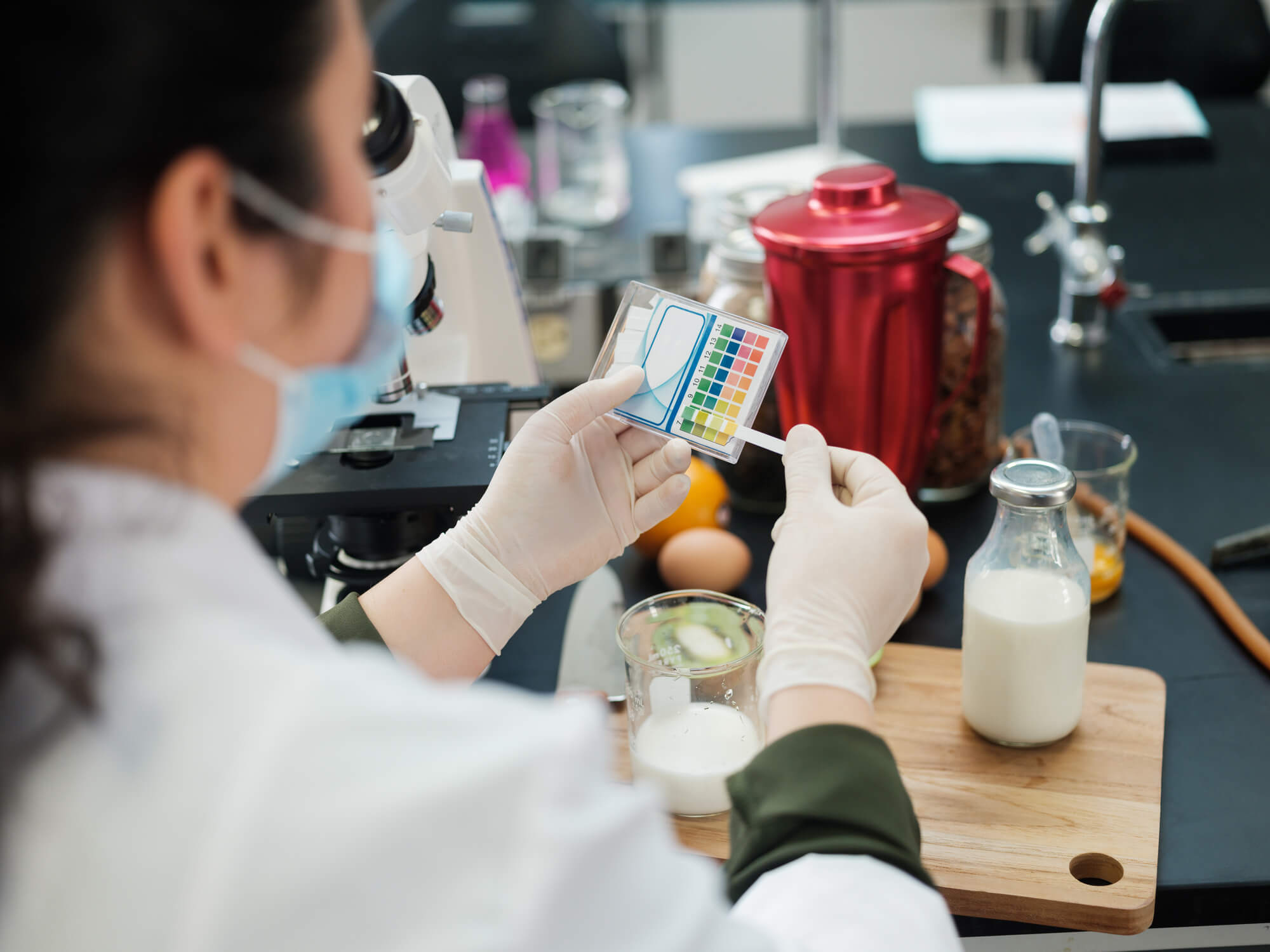Practical chemical food analysis
Overall Course Objectives
The objective is to give the students a practical experience in application of analytical chemistry in case based project work related to food products. Elements of method validation and experimental design is applied in relation to practical chemical analysis and chemical risk assessment of food. The course provides the basis for evaluation of analytical data by applying quality control parameters, analytical chemistry and statistical analysis on own data. Laboratory work for assignment and report writing are required.
Learning Objectives
- Explain the general principles of applied analytical procedures
- Create and present own data
- Evaluate own data in relation to consumer food safety
- Discuss and apply requirements for quality assurance in chemical food control in general and on own data
- Explain principles for quantification and exposure evaluation in food analysis
- Construct a report on own data that demonstrate attainment of the learning of relevant analytical theory, data-handling and -evaluation in relation to quality assurance and food safety
- Present and explain selected results and topics from the case orally using appropriate language
- Evaluate and argue for conclusions based on an unknown case and data in relation to obtained learning objectives
Course Content
For both, research, control and food production good valid analytical results are very important. Practical chemical food safety includes aspects of chemical analysis and control of unwanted chemicals in food and add skills to e.g. food production staff to be able to evaluate the validity of analytical data from third parties. Sample preparation includes fat soluble as well as water soluble components and the techniques applied. Before analysis of food samples separation from other food components are often necessary and include extraction (e.g. PLE, sonication, ultra-thurrax) and clean-up (e.g. GPC, SPE). Many analytical techniques (e.g. GC-ECD, GC-MS, LC-MS, ICP-MS) are applied for detection of both organic and inorganic food contaminants. Principles and examples of the analytical techniques will be presented together with risk based evaluation of data. Also, legislation and requirement of chemical control, including method validation and basic requirement of accredited analysis are important skills to obtain to be able to evaluate data.
Recommended prerequisites
23102, Knowledge on analytical chemistry and chemical contaminants is advantageous
Teaching Method
Lectures, exercises, group work, laboratory work, student presentation
Faculty
Limited number of seats
Minimum: 4, Maximum: 20.
Please be aware that this course has a minimum requirement for the number of participants needed, in order for it to be held. If these requirements are not met, then the course will not be held. Furthermore, there is a limited number of seats available. If there are too many applicants, a pool will be created for the remainder of the qualified applicants, and they will be selected at random. You will be informed 8 days before the start of the course, whether you have been allocated a spot.





